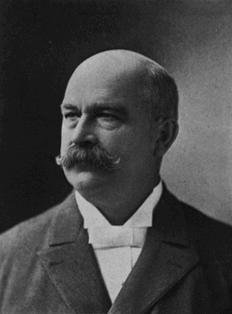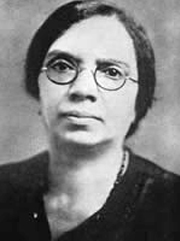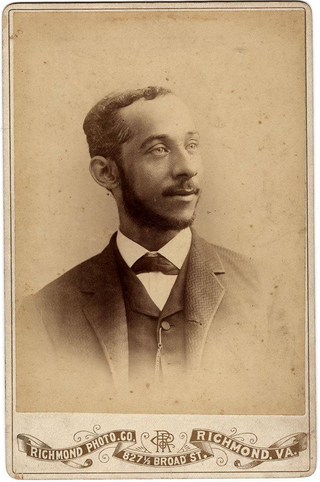
Duplin County is a county located in the U.S. state of North Carolina. As of the 2020 census,the population was 48,715. Its county seat is Kenansville.

Elizabeth City State University (ECSU) is a public historically Black university in Elizabeth City,North Carolina. It enrolls nearly 2,500 students in 28 undergraduate programs and 4 graduate programs and is a member-school of the Thurgood Marshall College Fund and the University of North Carolina system.

A normal school or normal college is an institution created to train teachers by educating them in the norms of pedagogy and curriculum. Many such schools have since been called teacher training colleges or teachers' colleges,but in Mexico,continue to be called normal schools,with student-teachers being known as normalistas. Many schools require a high school diploma for entry,and may be part of a comprehensive university. Normal schools in the United States,Canada,and Argentina trained teachers for primary schools,while in Europe,the equivalent colleges typically educated teachers for primary schools and later extended their curricula to also cover secondary schools.

Shaw University is a private historically black university in Raleigh,North Carolina. Founded on December 1,1865,Shaw University is the oldest HBCU to begin offering courses in the Southern United States. The school had its origin in the formation of a theological class of freedmen in the Guion Hotel. The following year it moved to a large wooden building,at the corner of Blount and Cabarrus Streets in Raleigh,where it continued as the Raleigh Institute until 1870. In 1870,the school moved to its current location on the former property of Confederate General Barringer and changed its name to the Shaw Collegiate Institute,in honor of Elijah Shaw. In 1875,the school was officially chartered with the State of North Carolina as Shaw University.

Francis Wayland Parker was a pioneer of the progressive school movement in the United States. He believed that education should include the complete development of an individual —mental,physical,and moral. John Dewey called him the "father of progressive education." He worked to create curriculum that centered on the whole child and a strong language background. He was against standardization,isolated drill and rote learning. He helped to show that education was not just about cramming information into students' minds,but about teaching students to think for themselves and become independent people.
All professional employees of public schools must hold a license for the subject or grade level they teach or for the professional assignment they hold. Licenses are issued in administrative,supervisory,student service,and teaching areas. Teaching areas encompass birth through kindergarten,elementary (K-6),middle grades (6-9),secondary grades (9-12),special subjects (K-12),exceptional children (K-12),and vocational education. The standard basis for license is the completion of a National Council for Accreditation of Teacher Education (NCATE) approved education program at an accredited college or university.

James Benson Dudley was President of North Carolina Agricultural and Technical State University from 1896 until his death in 1925. James B. Dudley High School in the town of Greensboro,North Carolina,where the Agricultural and Technical University is located,was named after Dudley in recognition of his work for his community.

Aaron McDuffie Moore,M.D. was a medical doctor,medical director,and officer at a bank,hospital,pharmacy,university and insurer serving African Americans in North Carolina. He was born in Whiteville,North Carolina. He lived in Durham,North Carolina.

Orishatukeh Faduma was a Nigerian-American Christian missionary and educator who was also an advocate for African culture. He contributed to laying the foundation for the future development of African studies.

Simon Green Atkins (1863–1934) was a North Carolina educator who was the founder and first president of Winston-Salem State University and founded the North Carolina Negro Teachers' Association in 1881. He dedicated his life to improving education for African Americans and his prowess in teaching allowed him to make great strides in providing better and equal education. In addition to teaching,Atkins worked to better his community by improving the health,housing,and economic status of the African American community.

Annie Wealthy Holland was an educator and the state supervisor of Negro elementary schools and was the founder of the first Negro parent-teacher association in North Carolina.

Edward McKnight Brawley was an American educator and minister in North Carolina and South Carolina. He was the first African American to attend Bucknell University. He was an important figure in the development of the African-American church in South Carolina and the American southeast and helped found numerous churches and schools,including the Benedict Institute and Morris College. He served as president at Morris and,earlier,at Selma University. Later in his career he was a professor at Shaw University. He was also a prominent pastor at numerous churches and an important figure in civil rights and religious affairs.

Silas Xavier Floyd was an African-American educator,preacher,and journalist. Active in Augusta,Georgia,he was a writer and editor at the Augusta Sentinel and later wrote for the Augusta Chronicle. In 1892 he co-founded the Negro Press Association of Georgia. He was pastor at Augusta's Tabernacle Baptist Church and was a prominent agent of the International Sunday School Convention. He was also a public school principal and an officer of the National Association of Teachers in Colored Schools.

Sarah Ella Wilson was an African American educator and clubwoman based in Massachusetts.

Dr. John Henry Bias was cofounder and second president of Elizabeth City State University. He was a Missouri native who held many administrative educational roles. He is responsible for the four-year baccalaureate accreditation of Elizabeth City State University.
Helena B. Cobb was an American educator and missionary from Georgia. Born in Monroe County,Georgia,she attended Atlanta University and served as an educator and principal at many schools for African Americans in the state. She was also active in organizing and pushing for greater missionary opportunities for women within the Colored Methodist Episcopal Church.
Lawrence Chesterfield Bryant was a professor,principal,pastor,and author. He wrote two books on South Carolina's 19th and early 20th century African American legislators. He was awarded the South Carolina Silver Crescent Award in 2005 for his research and work as an educator. Duke University has an extensive collection of his papers.

Daniel Barclay Williams was an American educator who worked at the Virginia Normal and Collegiate Institute,making him the first Black teacher of classics in the state.
Alexander B. Hicks Jr. was a state legislator in North Carolina. He represented Washington County in the North Carolina House of Representatives in 1881.















